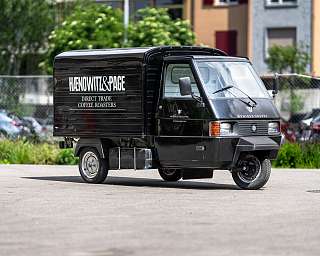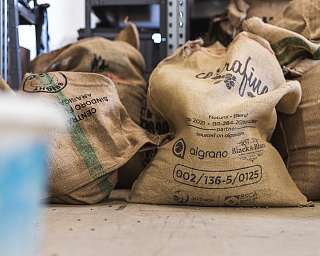Direct Trade is not a label, it is a way of trading and an attitude. Direct trade means that coffee roasters trade directly with the coffee farmers. No middle men, no coffee exchange. This means that the price paid is the price received by the coffee producer. We only import from politically independent, democratic, small and medium-sized collectives and cooperatives. There are neither individual farmers nor large-scale farmers among our producers. This promotes the distribution of knowledge and prosperity.
Direct Trade
There are simple but important differences to Fairtrade. In direct trade, there is a minimum price of US$ 2.45 per pound of green coffee, compared to US$ 1.40 in Fairtrade. Furthermore, great importance is attached to the quality of the coffee, which requires regular production site visits and joint developments with the producers. Up to 100% of the costs can be paid locally by means of pre-financing. This type of loan does not charge interest.
There are similarities with Fairtrade in other relevant aspects, such as the promotion of organic farming. All our coffee producers produce sustainably, and most of them are also certified organic. There is also a ban on forced and child labour. And the most important thing for both sides: we strive for long-term partnerships.
We have made a conscious decision not to use labels. It is important to us not to attach a label to our coffee, as the undeniably important Fairtrade and organic labels have recently been used in an increasingly inflationary manner and are also increasingly appearing in wholesale / large-scale production. This makes us doubt that the original principles of these labels are always being kept to. In addition, we feel that the focus on social and ecological sustainability is not sufficiently stressed.
It usually requires a certain percentage of the normal coffee price, around 0.5 - 1.25%, to be allowed to use the Fairtrade certification seal. That does not sound bad at first. However, the costs for certification, a fixed price, are not included in this.
The producer must therefore first have a certain harvest volume in order to be able to afford the costs of Fairtrade certification. If the producer experiences a poor harvest period, he may have to give up certification in order to be able to continue to feed his family.


